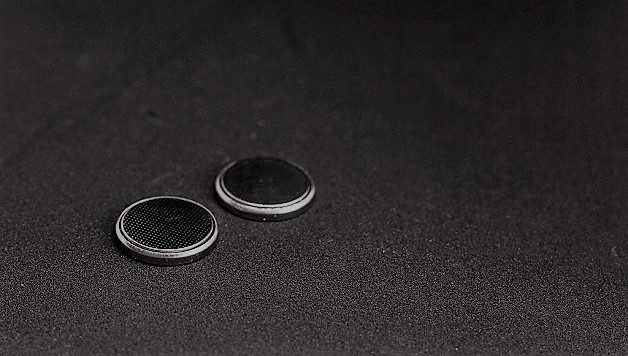The United States Department of Justice (US DOJ) is investigating the PGA Tour for potentially breaching US antitrust laws by suspending players who have joined new rival tour LIV Golf.
Who are these organisations?
The PGA Tour is a not-for-profit organisation for touring professional golfers that organises various flagship golf tournaments. It should not to be confused with the Professional Golfers’ Association of America which is an organisation primarily for non-touring professionals who work at golf courses, golf clubs, pro shops, driving ranges and similar venues as instructors or directors (for example).
LIV Golf is a new professional golf tour founded in 2021. It was formed by a number of former executives who split from the PGA Tour and other professional organisations, and its current CEO is Australia’s Greg Norman.
Being funded by the Saudi Arabian sovereign wealth fund, the deep pockets of this rival tour has presented a threat to established leagues like the PGA Tour. For example, LIV Golf offers up to $25 million in prize money at its tournaments compared to, for example, $20 million for the PGA Tour’s 2022 Players Championship purse. LIV also reportedly offers very lucrative signing bonuses for top golfing professionals.
Potential anti-competitive conduct
The emergence of rival tours has been a concern for current PGA Tour Commissioner Jay Monahan for some time now, having issued a warning in January 2020 that if certain rival leagues were to become a reality, members of the PGA Tour would “have to decide whether they want to continue to be a member of the PGA Tour or play on a new series”, possibly implying that such members may face suspension.
These competitive concerns were crystallised in June 2022 when Mr Monahan said that “if this is an arms race and if the only weapons here are dollar bills, the PGA Tour can’t compete… with a foreign monarchy.” In the same month, the PGA Tour indefinitely suspended 17 golfers who participated in LIV Golf’s tournaments on the basis that such participated violated PGA Tour’s Tournament Regulations, and issued a warning that “the same fate holds true for any other players who participate in future” LIV Golf events.
Hitting back, LIV Golf had sent a letter to its players and agents alleging that the PGA Tour engaged in monopolistic behaviour, and that the suspensions would “likely cause the federal government to investigate and punish the PGA Tour’s unlawful practices.” The letter also said that there was “simply no recognized justification for banning independent contractor professional golfers for simply contracting to play professional golf”.
US DOJ Investigation
The Wall Street Journal on 11 July reported that players of former or current members of the PGA Tour were contacted by the antitrust division of the US DOJ regarding the tour’s internal policies for player participation in competing golf events. An example cited was that the PGA Tour Regulations require that players must obtain a release to play in other non-PGA tours, which can be denied for reasons such as that the request would “significantly and unreasonably harm [the] PGA TOUR”.
While it is unclear what precise antitrust violations the US DOJ is investigating at this stage, the PGA Tour’s suspensions appear to raise risks under section 2 of the Sherman Antitrust Act of 1890, which criminalises actual or attempted monopolisation. This would essentially require the US DOJ to establish that:
- the PGA Tour had monopoly power in the market of professional golf in the United States; and
- the PGA Tour has acted in an anti-competitive way to maintain that power that is not a result of organic business growth or development.
The PGA Tour could seek to defend such a case by arguing that it does not have monopoly power given that there are a multitude of other professional golf tours throughout the world many of which are not controlled by the PGA Tour, and that the meteoric rise of the LIV Golf tour undermines any allegation that the PGA Tour is a monopoly.
The PGA Tour might also argue that it was not anti-competitive for it to suspend its players in circumstances where it had the right to do so against players who breached the tour’s internal rules.
Previous investigation of the PGA Tour
This is not the first time that the PGA Tour has been investigated for antitrust concerns. In 1994, the PGA Tour was investigated by the Federal Trade Commission (FTC) – the equivalent regulatory body in the US to the Australian Competition Consumer Commission – in relation to similar rules that prevented golfers from participating in non-PGA events without permission from the PGA Tour Commissioner. However, the FTC discontinued its investigation a year later.
It remains to be seen whether this current investigation will lead to any formal legal proceedings in the US, or whether the US DOJ will miss its shot again.
Australian stance
While the Australian Competition and Consumer Act (Cth) (CCA) exempts the performance of work under employment contracts from the definition of “services”, such that prohibitions relating to the supply of services under the Act (including the prohibition on the misuse of market power) do not apply to employment contracts, this exemption does not extend to the work performed by independent contractors.
The PGA Tour has long considered its golf members to be independent contractors, rather than employees and it is likely that golf players of Australian associations would be considered the same. Accordingly, if similar conduct were to occur in Australia, it may also raise concerns under the CCA (such as anti-competitive agreements in s 45, misuse of market power in s 46 and exclusive dealing in s 47), given that golf players are independent contractors, and not exempt employees.
Disputes between sporting leagues is not a topic unfamiliar to Australian sports fans. In the 1990s, when News Limited launched the rival Superleague rugby league competition, a dispute arose as to whether competition laws were breached by loyalty agreements entered into by the Australian Rugby League and its member clubs and players that prevented those clubs and players from defecting to the new competition. The Full Federal Court held that provisions of the commitment agreements amounted to exclusionary provisions on the basis they constituted agreements between competitors and had the purpose of restricting or limiting the supply of services to Superleague (among other restrictions). Arguments that they also constituted a misuse of market power and anti-competitive agreements were not determined by the Full Court.
We will be watching with interest how the US DOJ investigation develops.
Image credit: “Golf” by ys* is licensed under CC BY-SA 2.0.








